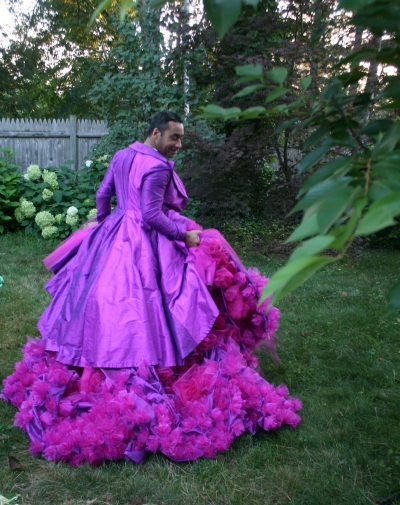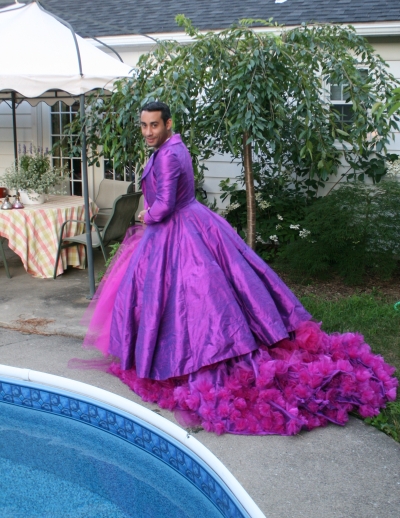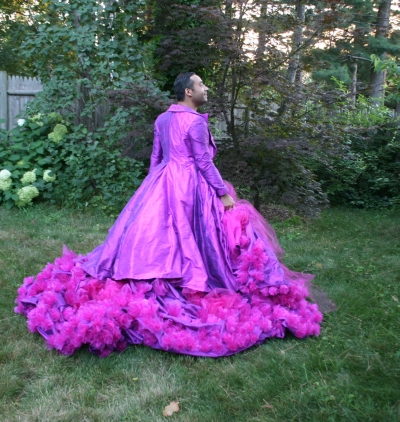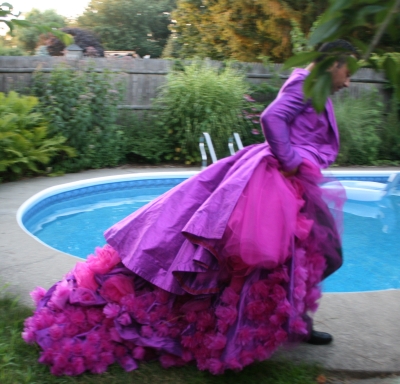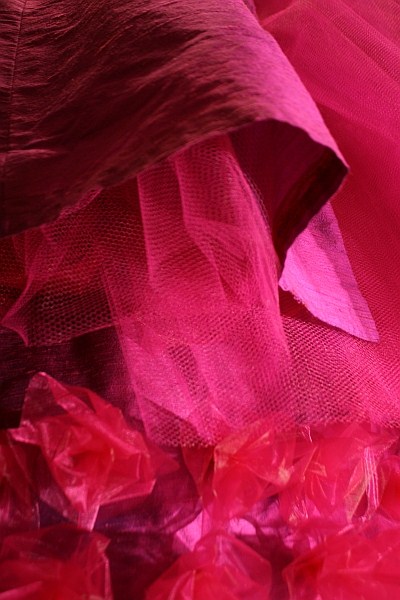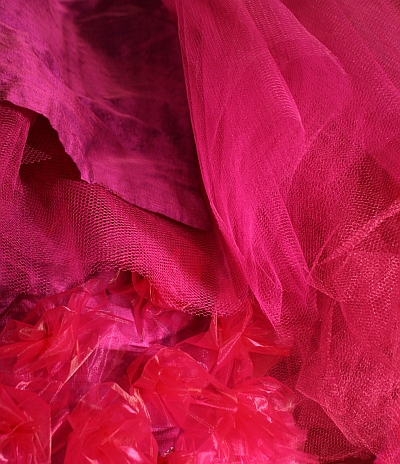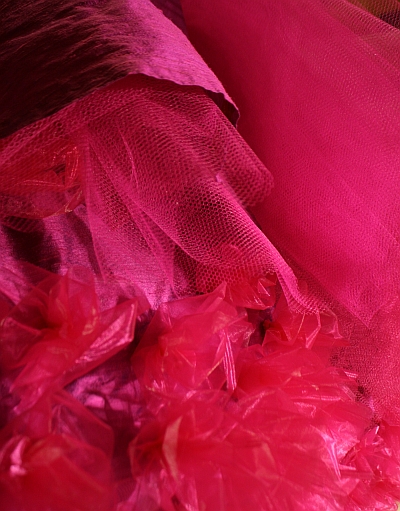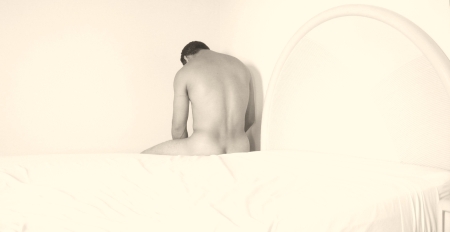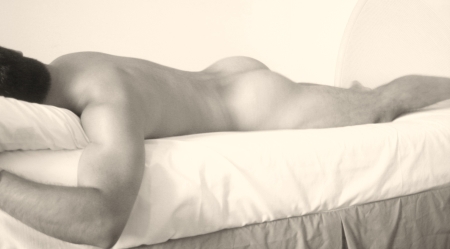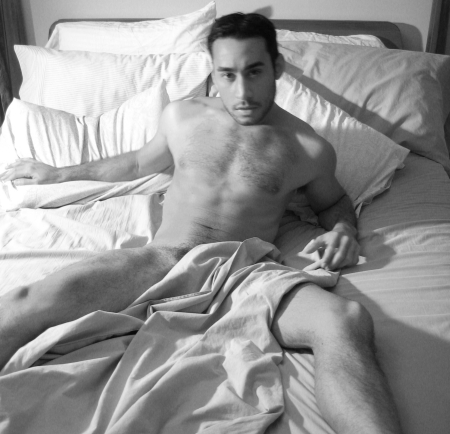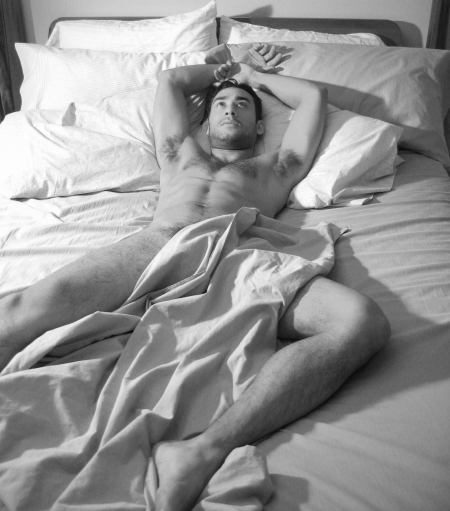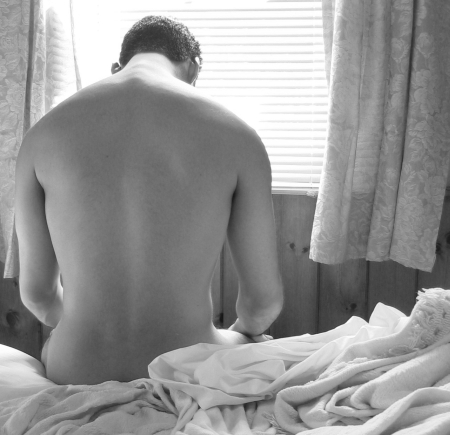It must have been late July or early August of 2001 when I finally got around to responding to Lee Bailey’s invitation to his home in New York. It had been a loose invitation to come and see him when the roses bloomed, so I called a few weeks in advance to let him know I would be in town (and to scope out whether the invite was genuine). He was kind and insisted I stop by to see him.
When I was a kid, his book ‘Country Flowers’ was my Bible (a somewhat strange thing for a boy to be so interested in flowers and gardening, but I sensed a kinship and inspiration in Mr. Bailey – in the way he appreciated beauty, in the way he nurtured a garden, in the way he conveyed eloquence and elegance in words and pictures). When I was about twelve I wrote him a fan letter, hand-written on lined notebook paper, and I called information (555-1212) from our rotary-dial phone to find out his address, which they gave without question or concern.
A few weeks later I heard back from Mr. Bailey himself, in a type-written letter wherein he expressed admiration for my love of gardening at such a young age. It wasn’t much, but it was enough to plant a seed in the head of an impressionable child, and his words of encouragement (and the simple fact that he wrote back) had an indelible effect on me. I would revisit ‘Country Flowers’ often, usually in the dead-middle of winter, when the hope of sunshine and spring was all we had.
It wasn’t until 2001 that I thought of contacting Mr. Bailey again, having been moved by one of the book’s passages, and struggling through another winter in upstate New York. In that letter, I referenced the first one I had written so many years ago, and as he did at that time, he replied again with a type-written letter, the signature betraying frailty and age, but the words still as concise and eloquent as ever. At the end of it he invited me to visit him in New York City, “when the roses bloom” and that summer I took the train into midtown to do some shopping and see Suzie.
In one of the garish celebrity-themed rooms of the Chelsea Pines Hotel, the air-conditioner was cranked on high. Summer in the city was something I usually avoided, but to meet the man who helped form and shape my lifelong love of gardening, as well as the person who wrote such wonderful words, it would be worth it. Or it would be a supreme disappointment. I wasn’t sure what to expect.
What does one wear to meet a hero? In the heat of a city summer, where the sidewalks bake and the subways broil, all fashion bets are off, and it becomes a matter of what will best stand up to sweat and sun. In this instance I chose a pair of light khakis, sandals, and a short-sleeve button-up shirt in breathable cotton, a faint abstract pattern of white clouds on the lightest of blue skies.
Mr. Bailey’s penthouse was only several blocks away on W. 23rd Street, but well before our agreed-upon meeting time, I began a slow, leisurely walk to calm my nerves. Though not known to many of my contemporaries, Lee Bailey was a celebrity to me, and not just on a famous level: he was a personal hero, whose eye for beauty was an inspiration, and whose writing taught me the transporting power of words. On reaching the appointed building, I gave my name to the doorman, who politely directed me to the elevator, telling me to take it all the way to the top floor.
No matter how many times I see it, the sumptuous look of wealth always astounds me. The ease of it, the refinement, the quiet serenity – the world is different this high above the city. Even the air is altered – cooler on this summer day, and streaming in through the French doors that opened onto a surrounding roof deck. There is no need for crude air conditioning, and a woman greets me in the hallway, leading the way to meet my idol.
I sit on a couch in the living room, surrounded by understated elegance and finery, and I accept a glass of ice water. Lee walks in slowly, looking older than the book jacket photos, but with a twinkle in his eyes betraying a life well-lived. We share some small talk, and I manage to hold a conversation despite my awestruck status. He suggests we take a walk around the roofdeck, and apologizes that I just missed the roses. A few straggling blooms are all that remain from June’s bounty, but it doesn’t matter.
Somehow, it is enough just being there with my hero. After years of admiring him from afar, I am still the little boy who wrote this gentleman a fan letter, having no connection to him whatsoever aside from the words and photographs he assembled in his book, and yet it is not awkward. We return inside, and he shows me where he does most of his correspondence. Tall shelves of books line the walls and reach upwards to the ceiling. A printer and computer sit on a desk. He is no different from anyone else, yet he has known and created such beauty.
We part shortly after, and I feel honored to have been granted an audience with him on this peaceful summer day. Back on the street, the heat is still there. I loosen a few buttons on my shirt and walk back to the hotel. We will maintain a correspondence for a while – he will send me his latest book and invite me to several of his holiday parties (each a separate post for another time). When I don’t hear from him for a while I send another letter, and a few weeks later I receive a response in the mail with his return address.
Savoring the moment, I bring the letter into the formal living room, settling into the couch and slowly opening up the promise of a hero’s words. It is a short note written in a strange hand by someone that I don’t know, and inside its folds is a copy of Lee’s obituary, several weeks after the fact.
It is a bittersweet moment – the shock of his life being no more and the gratefulness of having been some small part of it, at the very end. Though I did not know him that well, and would consider it much too bold to call him a friend, I knew I would miss him. Without knowing it, he guided me in his own way, his words steering me and keeping me on track, always on the path to beauty, to something better.

